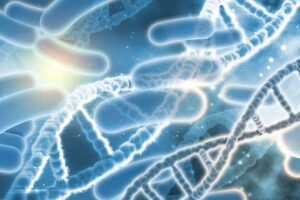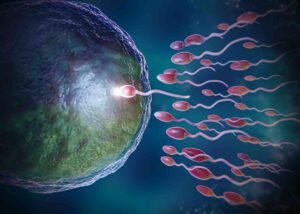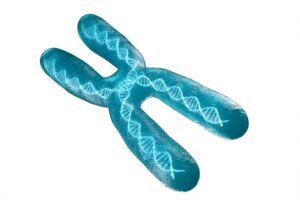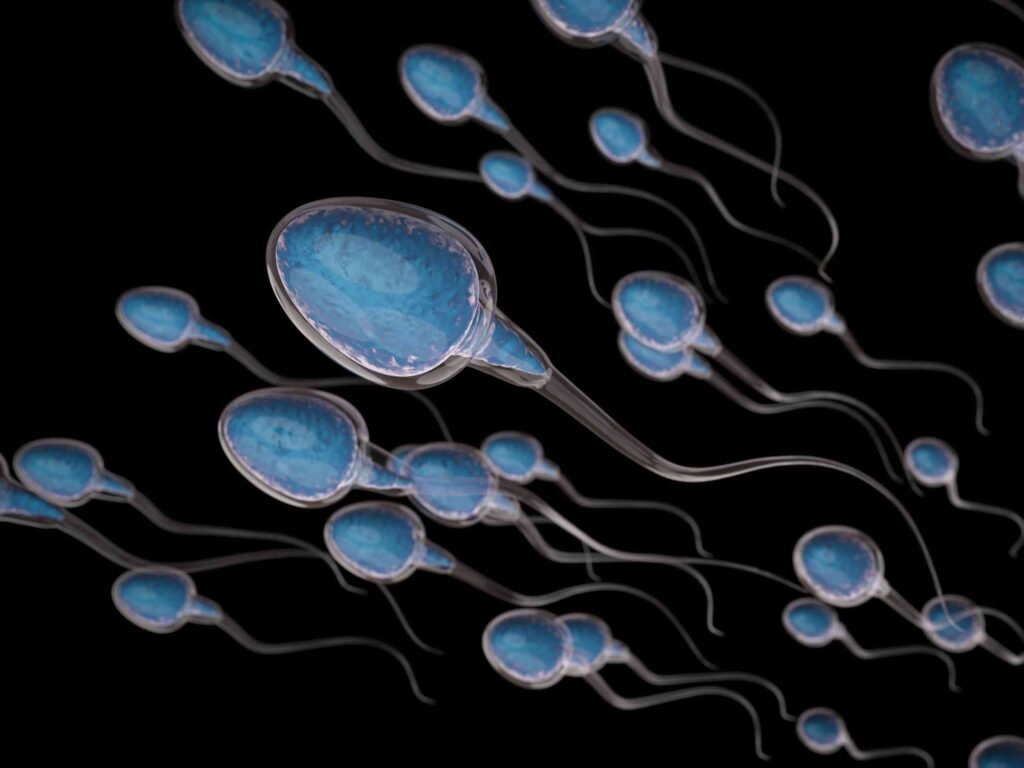Sperm DNA Fragmentation & Its Role in Fertility Loss
When couples face difficulties conceiving, it’s easy to assume the problem lies solely with the female partner. But here’s a truth bomb—male fertility plays a huge role too. And one of the lesser-known, yet critical factors affecting male fertility is sperm DNA fragmentation. It’s not just about sperm count or how fast they swim. What’s inside the sperm—the integrity of the DNA—matters big time.
If you’ve been wondering why conception isn’t happening despite “normal” semen analysis results, this blog will take you deep into the world of sperm DNA and how its damage can disrupt your fertility journey.

Understanding Sperm DNA Fragmentation
Let’s break it down. Every sperm cell carries DNA—essentially the instruction manual to create life. During fertilization, this DNA combines with the egg’s DNA to form an embryo. If the sperm’s DNA is broken or fragmented, the embryo might not develop correctly, or worse, fertilization may not happen at all.
It’s a condition where there are breaks or damage in the genetic material carried by the sperm. Imagine trying to read a book where half the pages are torn or missing. That’s what an egg has to deal with when it’s fertilized by sperm with fragmented DNA.
Now, here’s the kicker—traditional semen analysis doesn’t test for this. You could have a decent sperm count and good motility, but still be dealing with high levels of DNA damage. This is why some couples face unexplained infertility or repeated miscarriages, and the puzzle pieces just don’t seem to fit.
How Common is Sperm DNA Fragmentation?
It’s more common than you might think. Studies estimate that a significant percentage of men—especially those facing fertility issues—have elevated levels of DNA fragmentation in their sperm. Age is a major player here. As men get older, especially past 40, the risk of DNA damage in sperm increases.
But it’s not just age. Lifestyle, environmental toxins, infections, and even certain medical conditions can all contribute. We’ll dive into these risk factors in a bit.
Why Does It Matter in Fertility?
Let’s talk about outcomes. What happens when sperm with fragmented DNA manages to fertilize an egg?
- Poor embryo development: Even if fertilization happens, the embryo may stop developing due to faulty genetic instructions.
- Higher risk of miscarriage: One heartbreaking consequence is early pregnancy loss, often before a woman even knows she’s pregnant.
- Failed IVF cycles: Couples going through assisted reproductive techniques like IVF or ICSI may face repeated failures despite everything looking “normal” on paper.

Causes of Sperm DNA Fragmentation
Let’s get into the “why.” What actually causes this damage in the first place? There isn’t just one reason—there’s a mix of internal and external triggers.
1. Oxidative Stress
This is by far the biggest culprit. When there’s an imbalance between free radicals and antioxidants in the body, oxidative stress kicks in. Sperm are particularly vulnerable because they have very limited natural defense systems.
2. Age
As men age, DNA repair mechanisms in the body weaken. This makes older sperm more susceptible to DNA breaks.
3. Lifestyle Habits
- Smoking: Contains toxins that directly damage sperm DNA.
- Alcohol: Chronic drinking disrupts hormone levels and increases oxidative stress.
- Obesity: Excess fat leads to inflammation and hormonal imbalances.
- Poor diet: Lack of essential nutrients like zinc, selenium, and vitamins C & E can affect sperm quality.

3. Environmental Factors
- Exposure to heat (think hot tubs or laptops on the lap)
- Pesticides
- Radiation (from X-rays or industrial work environments)
- Heavy metals like lead or mercury
5. Infections & Medical Conditions
- Varicocele (enlarged veins in the scrotum)
- STIs
- Chronic illnesses like diabetes
- Cancer and certain medications
Signs That Might Point to Sperm DNA Damage
Unfortunately, there are no obvious physical signs. Men with high sperm DNA fragmentation may look and feel totally healthy. However, some red flags that may suggest DNA damage include:
- Long-term unexplained infertility
- Recurrent miscarriages in your partner
- Failed IVF or ICSI attempts
- Advanced paternal age
- Lifestyle factors like smoking, alcohol, or high stress
How is Sperm DNA Fragmentation Measured?
Thankfully, there are specific tests designed to detect DNA damage in sperm. Here are some common ones:
1. SCSA (Sperm Chromatin Structure Assay)
Measures how much the sperm’s DNA is damaged using a dye that binds to broken DNA.
2. TUNEL Assay
Directly measures DNA breaks by labeling the damaged sections.
3. COMET Assay
Look at individual sperm under a microscope to see how far the DNA has “leaked” out—long tails suggest higher damage.
4. SCD (Sperm Chromatin Dispersion) Test
Assesses the ability of sperm DNA to spread when treated with an acid; less dispersion usually means more fragmentation.
Each test has its pros and cons, but all aim to give a clearer picture of what’s going on inside those little swimmers.

What Can Be Done About It?
The good news? Sperm DNA fragmentation isn’t a life sentence. There are plenty of ways to reduce or manage it, especially if you catch it early.
Lifestyle Changes That Help:
- Quit smoking and reduce alcohol: Easier said than done, but a game-changer for sperm health.
- Eat antioxidant-rich foods: Think berries, leafy greens, nuts, and seeds.
- Exercise regularly: Keeps hormone levels balanced and reduces stress.
- Get enough sleep: Recovery and cellular repair happen when you rest.
- Reduce heat exposure: Skip the saunas and keep laptops off your lap.
Supplements That Support DNA Integrity:
There’s growing evidence that certain supplements can help improve sperm DNA quality:
- Vitamin C and E
- Zinc
- Selenium
- Coenzyme Q10
- L-Carnitine
- Omega-3 fatty acids Always talk to a doctor before starting any supplement routine—what works for one person might not work for another.

Medical Treatments:
If lifestyle changes aren’t enough, fertility specialists may suggest more targeted treatments:
- Varicocele surgery: If a varicocele is contributing to the problem.
- Antioxidant therapy: High-dose antioxidant medications or supplements.
- Using testicular sperm for IVF/ICSI: Sperm retrieved directly from the testicles often has less DNA damage than ejaculated sperm.
- DNA fragmentation index monitoring: To track improvements or declines over time.
Can You Still Get Pregnant with High Sperm DNA Fragmentation?
Yes, but it can be harder—and it might take longer. Some couples still conceive naturally despite high DNA fragmentation, but others may need the help of assisted reproduction. The key is understanding where the issue lies and taking informed, proactive steps.
For couples undergoing IVF, some clinics now routinely test for sperm DNA fragmentation and use specialized techniques to select healthier sperm. This can improve embryo quality and increase chances of a successful pregnancy.
Final Thoughts:
In the fertility conversation, men have often taken a back seat. But the truth is, sperm quality matters just as much as egg quality—maybe even more. And the quality isn’t just about count or speed. It’s about the integrity of the DNA being passed on.
Sperm DNA fragmentation is like a hidden layer of the fertility puzzle. Once you uncover it, everything else starts to make a lot more sense.
So if you’re struggling to conceive or just want to be proactive about your reproductive health, don’t ignore this silent factor. A simple test could be the key to unlocking a healthier path forward—for you, your partner, and the family you hope to build.


